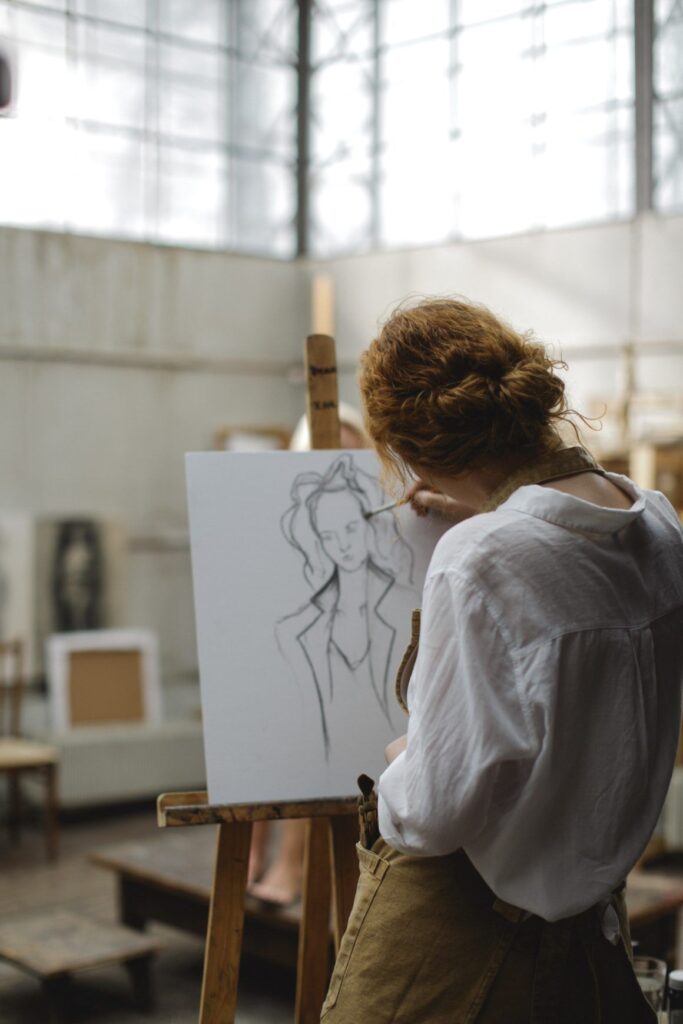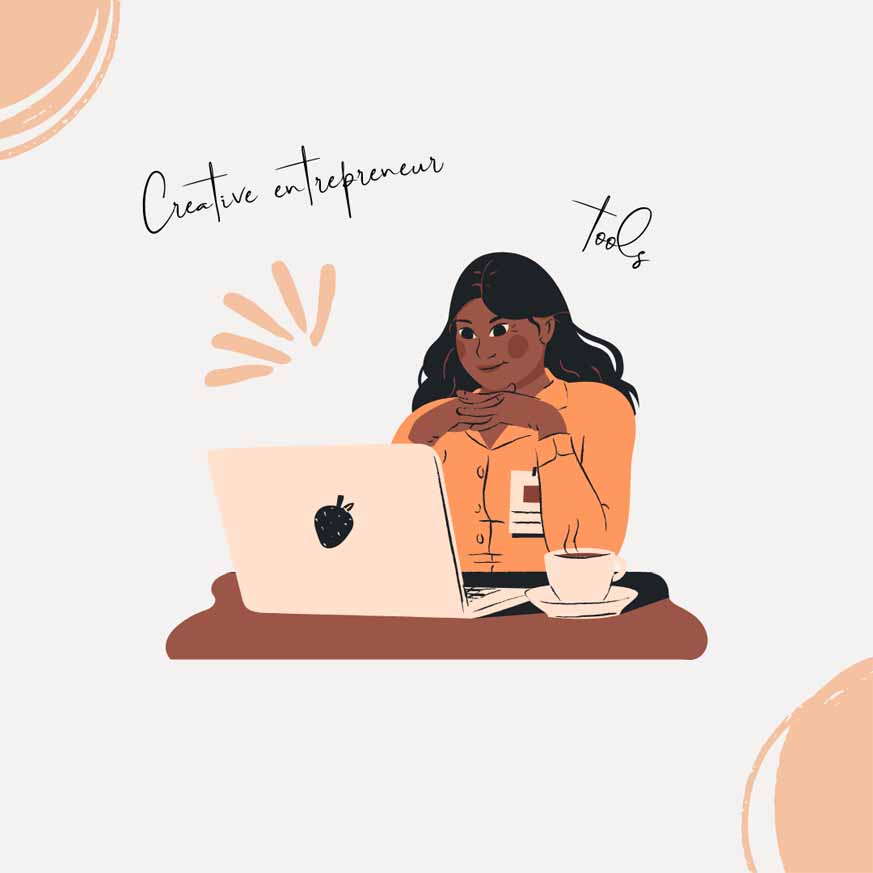In my previous article, “Personal Branding for Artists: Create Your Own Personal Brand,” I shared with you how you can start building your creative business and brand yourself as an artist online. However, making a business out of your art requires a set of attitudes, skills, and tools to help you create a presence and scale it into a profitable creative business.
Disclosure: This blog post is in partnership with Creative Market, which means I may receive a commission if you purchase the products I recommend. While purchasing the products I recommend won’t cost you any extra money, they will help me keep this blog up and running. Thank you for your support!
This article will cover:
- Who is a creative entrepreneur?
- What skills do we need to succeed as creative entrepreneurs?
- What tools do we need to power our creative businesses?
Who is a creative entrepreneur?

A creative entrepreneur is someone who uses their creativity and innovative skills to create and operate a business. Being a creative entrepreneur entails integrating your artistic and creative abilities with your entrepreneurial abilities in order to build a profitable business.
Depending on your creative work, creative entrepreneurship may take different forms. You may be a graphic designer, a writer, a painter, or a fashion designer, for example. Whatever your creative field (or niche) is, you use your skills to create products or services that have commercial value (are sellable), which can then be promoted and sold to your customers.
What skills do we need as creative entrepreneurs to succeed in our art businesses?
Successful creative entrepreneurs must have a blend of creative skills, business acumen, and marketing know-how. We need to be able to create high-quality products or services, manage our finances, and promote our work to potential customers. We also need to be able to adapt to changing market conditions and be resilient in the face of challenges.
Here’s a list of the main factors that I believe are crucial to creating a successful art business.
Creativity and skill
Your creative and technical skills are the foundation of your business. You need to be able to produce high-quality work that resonates with your target audience.
Business Acumen
Running an art business requires a different set of skills than creating art. You need to understand basic business principles such as accounting, marketing, and customer service.
Market Research
It’s important to research your target market to understand their needs and preferences. This helps you tailor your products or services to meet their demands.
Networking
Networking is essential to building relationships and gaining exposure. Attend industry events, join professional organizations, and collaborate with other creatives to expand your reach.
Financial Management
Managing your finances effectively is critical to the success of your art business. Create a budget, track your expenses, and price your work appropriately.
Resilience
Building a successful art business takes time, effort, and persistence. Be prepared to weather setbacks and stay motivated in the face of challenges.
The tools every creative entrepreneur needs to succeed

As I have previously mentioned, depending on the creative work you create, these are some of the ultimate tools that would definitely come in handy for most creative entrepreneurs.
Project management
Creative entrepreneurs are prone to managing their businesses from home. Therefore, the line between personal and professional life grows very fine. Always make sure you have your work and personnel planners separated. Set deadlines for yourself; it’s the only way to stay productive and keep yourself motivated to get work done. I use a Gantt chart to keep a visual representation of my progress and work timeline when it comes to my blogging business, and it is a very helpful tool.
Social media creation tools
Social media is a free way to promote your brand and showcase your work to the world. However, in order to stand out on social media, you need to have a clear and consistent brand identity. It is for that reason that I highly recommend using social media templates instead of designing your own. As artists, the majority of us have only a few hours a day to dedicate to working and developing our art business. Focusing on the main creative work we do is so much more rewarding in the long run than getting distracted trying to be everywhere and do everything.
On creative market, you will not only find social media templates that fit every existing aesthetic, but you can also find graphic elements if you prefer not to show your face, analytics keynotes, social media kits, strategies, a social media planner (make sure you have one and schedule your posts beforehand so you’re not in a content marathon), and so much more.
Financial tools and scaling up your business
If you prefer to do so, you can hire a financial expert to handle it for you. However, you can also get tools to help you stay organized and on top of your finances for much less. All you need are:
Invoicing templates: Your invoices are commercial documents that you issue to your customers relating to a sale transaction. An invoice usually indicates the products, quantities, and agreed-upon prices for the products or services you provided. And if that sounds like a tricky document to create by yourself, you can go ahead and get a premade template and just add your edits to it.
Financial planner: These are customizable charts to help you track your finances, create a budget plan, savings plan, and define your financial goals.
Project proposals: Project proposals are your best friends if you plan on pitching your business to potential collaborators, partners, and B2B deals.
Website templates: Having a website is a great step to scaling your presence on social media to reach more customers and connect with other creatives. Websites are cool because we get to control our algorithm, contrary to social media channels, where you have to submit to the rules of the platform and modify them to fit the norms.
Portfolio templates: I have already talked in detail about why you need a portfolio as an artist. And having a premade template to edit and refill is just so much easier and less time-consuming than creating your own from scratch.
These were some of the tools that I personally found needed to help us develop our creative enterprises. Leave me your comments with the tools you use most and enjoy creating <3


